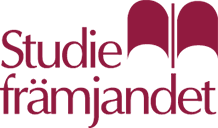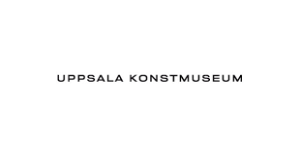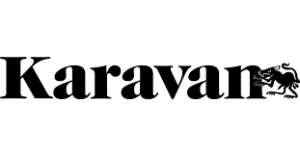A warm welcome to Uppsala International Literary Festival. This is the sixth festival since it began in 2018.
This year’s festival is a response to political and military threats to democracy and human rights. This is especially relevant given the presence of war that once again casts a shadow over Europe as well as the ongoing revolt against oppression in Iran. We see attacks on established democracies and opposition to democratic struggle against authoritarian regimes. Margaret Atwood reminds us that “War is what happens when language fails” and we see this in recent rhetoric of Russian leaders that distorts reality, relying instead on demagogy and the demonization of others to cover or excuse their own crimes against humanity.
The abuse of power and language to manipulate peoples’ emotions is evident in many other conflicts from Rwanda and the Balkans to the on-going internal conflicts in Iran, Iraq, and Turkey.
And yet, in all such situations, literature presents resistance by testifying to truths. Even if it speaks from the place of a victim this is also a step in the direction of reparation, liberty, and reconciliation.
In that spirit, this year’s festival collaborates with the research program Democracy and Higher Education at Uppsala University. Research is fundamental for processes of democratization to flourish not only in societies fraught by violent conflict, but also in the context of polarized culture wars that presently divide normally stable democracies. Literature has the power to shed light on different points of view and to represent society in all its complexity. It can help marginalized or silenced voices be heard and it teaches us about democracy in the making. Researchers and students need to draw on that knowledge and at the same time the expertise of scholars can offer important historical and social contextualization to those questions that literary texts raise.
It has been said that during the communist era the retelling of Russian literature helped prisoners to survive the Gulags and today Russian authors speak of their own nation-state as a perpetual arch-enemy.
We will discuss books dealing with crimes committed in the Soviet Union, Russia, Ukraine, Bosnia, Rwanda, Iraq, Iran, and Turkey, but also books about how hate has taken root also in Sweden.
To speak with two Swedish authors, filmmakers and comedians, Tage Danielsson and Hasse Alfredsson:
We who are doomed to live in the era of distress?
What do we do now? Which language should we address?
We would like to extend our infinite gratitude to the municipality of Uppsala, the Swedish Culture Council, the Swedish Academy and Democracy and Higher Education at Uppsala University.
Once again, a warm welcome!
Program 2023
Wednesday 22 February – Uppsala Stadsbibliotek
18.00, Words that give life to the victims of genocide
The award-winning author Scholastique Mukasonga recently came out with the autobiographical book The Barefoot Woman. Here she tells about her mother who was one of the million people who were murdered during the genocide of the Tutsi in Rwanda 1994. Mukasonga lost large parts of her family, including her father and five of her siblings. Scholastique Mukasonga will engage in a conversation with Kholod Saghir.
Language: French translated to Swedish
LÄS MER >>>
Thursday 23 March – Akademibokhandel Uppsala
18.00, The Faith of Iraq, told from Finland
The Finnish-Iraqi writer, poet and director Hassan Blasim ended up in Finland after he fled the war and the censorship in Iraq. From there he has become one of the most important voices of the faith of Iraq in literature. Hassan Blasim will talk with the journalist Mikael Olsson Al Safandi.
Language: engelska
LÄS MER >>>
Friday 24 march – Uppsala Stadsteater
What can literature teach us about reconciliation and democratization?
Introductory words by Christina Kullberg, professor of French and Francophone Literatures and project leader in the research program Democracy and Higher Education, Uppsala University, and Kholod Saghir, artistic director for Uppsala international literature festival.
Language: English
LÄS MER >>>
18.10, Writing as Redemption – the Question of Reconciliation
This year’s festival highlights work by writers who testify to crimes committed by regimes. These writings work toward change, condemnation, or reconciliation. Elisabeth Hjorth, author, doctor of theology and ethics, professor of creative writing at Gothenburg University, lectures about forgiveness, reparation and hope.
Language: English
18.30, The Neo-Soviet Myth and New Narratives in Russian Culture
The war in Ukraine marks the tipping point of a development that has been going on for the last decade in Russia where a conservative political turn has taken place. Maria Engström, professor of Russian, Uppsala University, gives a background to the conversation with Lebedev and talks about how recycled narratives and ”neo-Soviet myths” are launched in Russian cultural life.
Language: English
19.15, Russian Graves Speaking and Soldiers Calling Home
Sergej Lebedev, Russian author and journalist, known for his relentless digging through the question of how Russia’s dark history influences its contemporary society and culture. Here he dialogues with Ida Börjel, award-winning poet, who recently came out with the poetry collection Call Home (Ringa hem) where she interprets Russian soldiers’ bugged phone conversations.
Language: English
Saturday 25 march – Uppsala Konstmuseet
14.00, Blood on Swedish Hands
Two current authors investigate the Swedish Institute for Racial Biology. In the form of poetry in the award-winning poet Burcu Sahin’s Blood Book (Blodbok) and in the form of prose in author and literary critic Ola Larsmo’s Lesson 11 (Lektion 11).
Language: Swedish
Saturday 25 march – Uppsala Stadsteater
15.30, To Revisit Iran Through Writing
A Hand Full of Wind (En handfull vind) is dedicated to those political prisoners who were mass-executed in Iran in 1988. Swedish author Negar Naseh’s novel was published just prior to the reinstallation of the death penalty for political protests. Khashayar Naderehvandi is another Swedish author of Iranian origin, who recently came out with the novelRevenants (Hemsökelse). Here they will engage in a conversation with writer Hanna Nordenhök.
Language: Swedish
16.45, The Brain Behind the Genocide
The lieutenant colonel who organized the executions in the Bosnian city of Srebrenica is portrayed in a new documentary novel by the novelist and journalist Ivica Djikić. He will meet Andreas Norrman, author and diplomat with experience of the Balkans, for a conversation.
Language: Croatian translated to Swedish
18.00, Prosecuted for Terrorism in Turkey
One of Turkey’s most important writers Aslı Erdoğan, despite being awarded many literary prizes in Europe, was prosecuted and imprisoned for her writing in Turkey six years ago. The collection of essays Not Even the Silence is Our Own (Inte ens tystnaden är vår egen) comprises the texts that led to her prosection for terrorism. She will engage in a conversation with the journalist
Language: English







